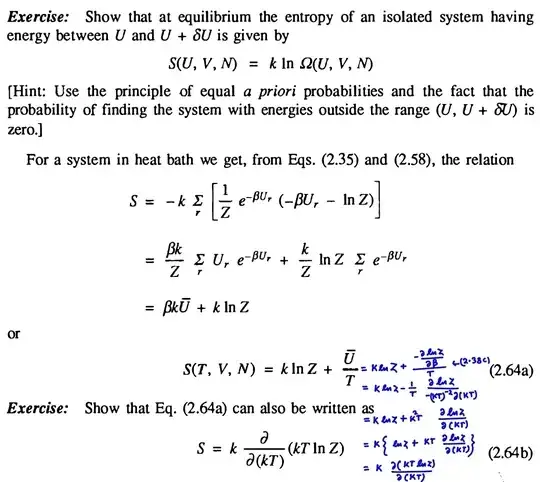You need to be a bit more careful in how you reframe the problem, because 2.64b is not making an assumption about the ensemble, but your equation does (implicitly, equal a priori probabilities).
The general statement,
$$\frac{S}{k_B} = \frac{\partial}{\partial T}\left ( T\ln Z \right ) \tag{1}$$
Is true. Apply the partition function from the canonical ensemble:
$$Z(T)=\sum_i e^{-E_i/k_B T}$$
The partial derivative of temperature on $Z$ will not be affected by the limits of integration on the phase space, so it is fine to bring the derivative inside the sum.
Recall the Helmholtz Free Energy,
$$F=U-TS$$
$F$ has a relationship to $Z$,
$$\ln Z= \frac{-F}{k_B T} \tag{2}$$
Putting all of this together gives $(1)$.
Also, you can use information from the Legendre transform to jump straight to the answer:
$$-F(V,T)+U(V,S)=TS$$
Therefore, at constant volume,
$$\frac{\partial F}{\partial T}=-S$$
It's easy to see from here how we get $(1)$ again.
